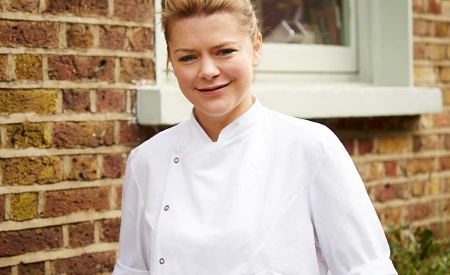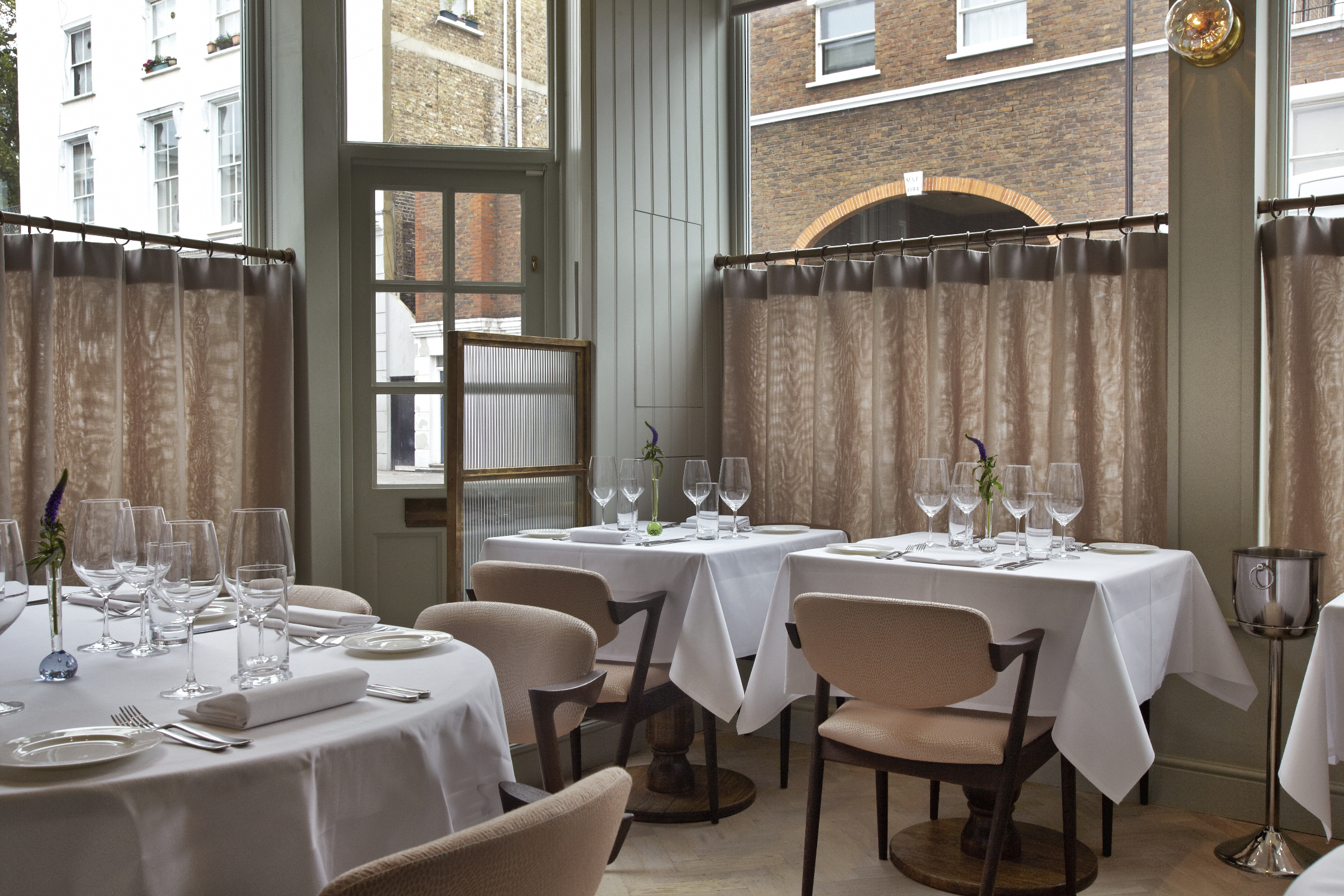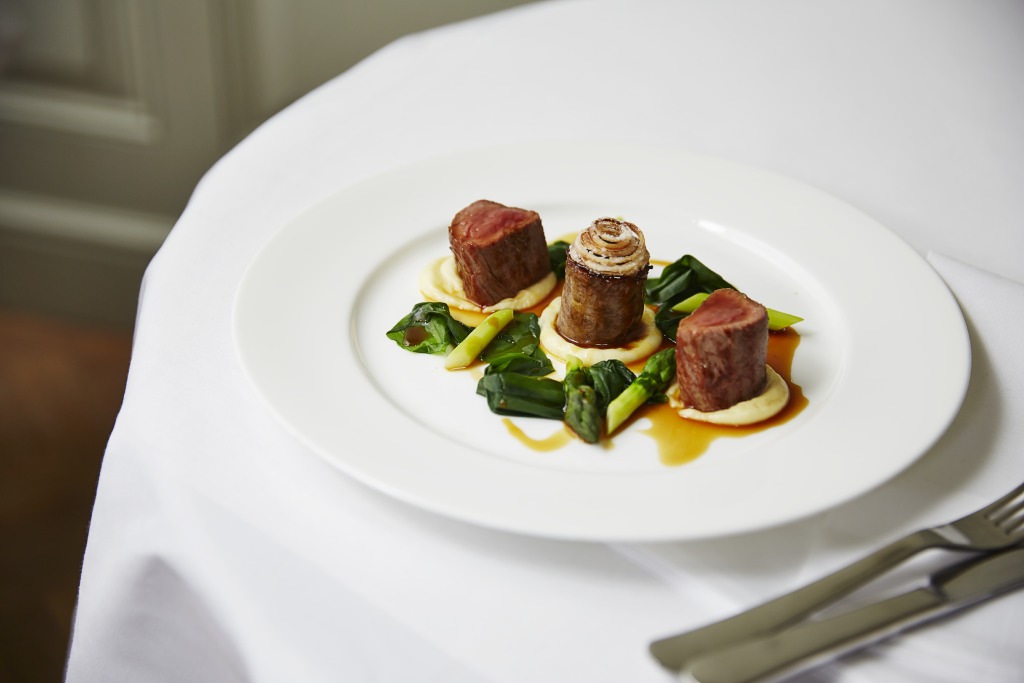Interview with chef Marianne Lumb
We talk to chef and MasterChef finalist Marianne Lumb about ambition, coping with failure and how she achieved her dream of opening her own restaurant

Where did you grow up? What was your childhood like? Where did your love of food and cooking come from?
I grew up in Leicestershire, in a small idyllic village called Long Clawson in the Vale of Belvoir. My childhood was very fortunate and full of amazing travels. We also had horses which took up most of my time until my early teens. My love of cooking came from my family – my father and my uncle both had butchers shops in the village (healthy competition). My mother used to cook pork pies, hams etc at home. Also, I’ve always had a passion for eating!
What inspired you to become a chef? How did you get started in your career?
It took me a long time to decide to become a chef, but once I realised (at age 21), I never looked back. I thought long and hard about a career, I wanted to find something I could grow with and be constantly learning all of my life. I contacted a restaurant my father used to deliver meat too, to see if there was any availability for a trainee…and there was!
How did you cope with the pressure of being on MasterChef and all the media attention?
I must admit I found it very difficult coping with the pressure… that was the biggest focus of the show for me, not the cooking. The media attention was very intense, very quickly. I was a nervous wreck by the end of the filming. I actually left London and went to be a private chef in the Cotswolds for the Bamford family as I found the attention distracting from my cooking, it was all about being a celebrity and nothing about being a chef.
When you were filming the programme, how did you keep your focus and not worry about what everyone else was doing? Did you find it difficult?
It took all of my concentration to focus on cooking. I didn’t really worry about what the other contestants were doing, as I was from a different background to most of them so I knew I would stand out. I do remember during some of the competition being deafened by the sound of my beating heart. It was truly the survival of the fittest.
How do you cope with failure – when something doesn’t go the way you’ve planned?
I think the best thing is to process it, learn from it and move on. Put it down to a learning experience. And I like to remind myself that the most successful people in the world have had many failures!
What drove you to open Restaurant Marianne? Did you have doubts about whether it would be a success? How did you cope with that?
I just thought having cooked for over 20 years, my cooking deserved a platform. I love the way my restaurant connects me to people. There is no nicer way to spend a sunny morning than being in my kitchen, experimenting with lots of fresh ingredients. I didn’t have time to have doubts as to whether the restaurant would be a success, I was too busy cooking!
Cooking is what I have done all of my adult life, so I had to be doing something very wrong in order for it not to succeed. I distinctly told my business partner: “once they are through the door, I will make sure they come back, but I need some help getting them through the door!” That’s where PR came in…

What made you decide on a Notting Hill location?
Well, I’ve spent a lot of time cooking in Notting Hill (as a private chef) so it feels like home to me. I love the fact we are around the corner from The Cow – one of the coolest pubs in London. I know lots of suppliers too around there. Finally, it was the only site I liked out of hundreds that I looked at (all over West London!) and the only one that felt right.
Do you prefer cooking for a small number of people or larger groups? What food do you enjoy preparing most?
I prefer cooking for a small amount of people. I have cooked for hundreds on many occasions, but I love the focus cooking for a small group gives you. Anything fresh and in the peak of its season and condition – a perfectly fresh seabass or a perfect artichoke… anything like that.
You’ve said you want to create a menu where people look at it and feel comfortable with choosing anything – what sort of dishes can people expect?
Well, the bottom line is I want every single one of my customers to love everything that we do. I’m from a humble background foodwise, and my years of being a private chef I think allows me to tune into my customers’ palettes. With truffles for example, I’ve converted a lot of truffle-haters to truffle-lovers with our truffled linguine! You can expect a very sophisticated, balanced journey around England, France and maybe Italy and Spain.
So this can be ceviche or Hebridean scallops with Sicilian blood oranges, truffled linguine with spring white truffles from Piedmont, to soufflé of carrot cake, with spiced pecans, brillat Savarin ice-cream, and butterscotch… I like to think what we do is innovative and clever but, above all, delicious.

What do you do to relax and switch off?
I like to cycle or run around Hyde Park. Also, when I have a Saturday night off, I like to go dancing with friends. I’m particularly excited about the resurrection of Renaissance, a club that I grew up with, that plays amazing music!
Any new projects on the horizon?
We are just fully staffed for the first time since opening in 2013, so in the little time that I have, I’m focusing on writing a book about my cooking journey to opening Marianne Restaurant!
Marianne Restaurant, 104a Chepstow Road, London W2 5QS www.mariannerestaurant.com








